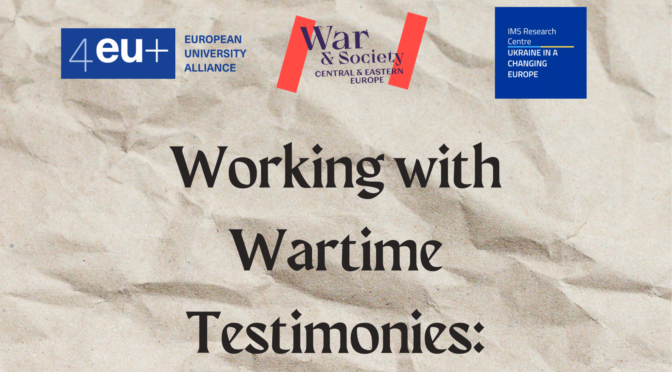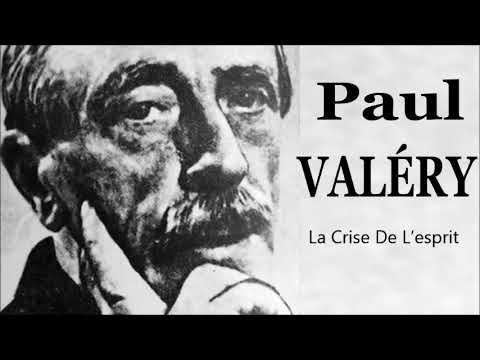Working with Wartime Testimonies: Practical Workshop in Digital Humanities
A workshop jointly organized by the “War and Society” research alliance, the “Ukraine in a changing Europe” center of the IMS (Institut mezinárodních studií) at FSV UK, CEFRES and supported by 4EU University Alliance.
Location: CEFRES, Na Florenci 3, Prague (Friday 24) and FSV UK, U Kříže 8, Praha 5 Jinonice, Room C322 (Saturday 25)
Date: 24.–25. May, 2024
Language: English
Organizing committee:
- Kateřina Fuksová (CEFRES / FSV UK)
- Ota Konrád (FSV UK)
- Valeria Korablyova (FSV UK / CEFRES Associate)
- Astrid Greve Kristensen (Sorbonne Université / CEFRES Associate)
Program
17.00 – 17.20 Meet-up and registration
17.20 – 17.30 Welcome from the organizers
17.30 – 18.30 Opening Keynote
- Natalia Otrishchenko, Lviv Center for Urban History
“From Euromaidan to Full-Scale Russian Invasion: Archiving Ukrainian Society’s Experiences” (will be live-streamed)
18.30 – 19.45 Panel Discussion: “Europe after the Russian full-scale invasion”
- Panel: Valeria Korablyova, Charles University, Vladimír Handl, Charles University, Jakub Eberle, Institute of International Relations Prague
- Chair: Martin Laryš, Charles University
19.45 – 21.00 Reception at CEFRES
Saturday May 25th: Faculty of Social Studies, Charles University, U Kříže 8, 158 00 Praha 5 Jinonice, Room C322
08.45 Meet-up in front of the library at Campus Jinonice
09.00 – 10.00
- Jiří Kocián PhD, FSV, Charles University
“Digital Collections of Historical Sources: Users’ and Producers’ Perspectives”
10.15 – 11.15
- Cecile Boëx, EHEES, School of Advanced Studies in the Social Sciences
“Collecting and Analyzing Wartime Video-Testimonies in Syria. What Can Images Do?”
11.30 – 13.00 Student Presentations (more detailed program for panels will come)
- Chair: Astrid Greve Kristensen, Sorbonne University
13.00 – 14.00 Lunch
14.00 – 15.30 Practical Workshop and coding in Taguette in the digital database “Voices of Resistance and Hope” with Natalia Otrishchenko, Lviv Centre for Urban History
15.45 – 17.00 Panel Discussion: “Trauma in War Testimony Research”
- Panel: Natalia Otrishchenko, Lviv Center for Urban History, Cecile Boëx, EHESS, Marija Krgovič, University of Copenhagen
- Chair: Kateřina Fuksová, Charles University
Abstract:
On February 24, 2022, the lives of the people of Ukraine changed. On that day, Russia started the “special military operation”, a full-scale war against the Ukrainian people. Europe, which mistakenly believed that people had learned the lessons of the horrors of the Second World War, was drawn overnight into the new reality of war. Thousands of refugees began to flow in, bringing with them stories of violence, suffering and loss of loved ones – war refugee testimonies, a genre that should rather not even exist.The workshop „Working with Wartime Testimonies: Practical Workshop in Digital Humanities” focuses on survivor testimonies not only from Ukraine, but from a diverse perspective both temporally and geographically and approaches them from the point of view of digital humanities. To this end, the workshop seeks to showcase the opportunities digital tools offer for preserving and analyzing wartime testimonies. Through practical exercises, keynote lectures, panel discussions, and student presentations, participants will gain insight into utilizing digital tools effectively, enabling them to engage with testimonies in innovative and interdisciplinary ways. During the workshop the participants will explore existing digital archives housing wartime testimonies, especially regarding the ongoing Russian full-scale invasion of Ukraine, but also the archives of Holocaust survivors’ testimonies as well as those who survived the civil war in Yugoslavia. Ethical considerations loom large in this discussion, with the project addressing the sensitive nature of working with wartime testimonies. Participants will explore issues of trauma, consent, and privacy and learn strategies for ethically collecting, preserving, and disseminating testimonies in a way that respects the dignity and agency of those involved while considering their own psychological well-being, too.






